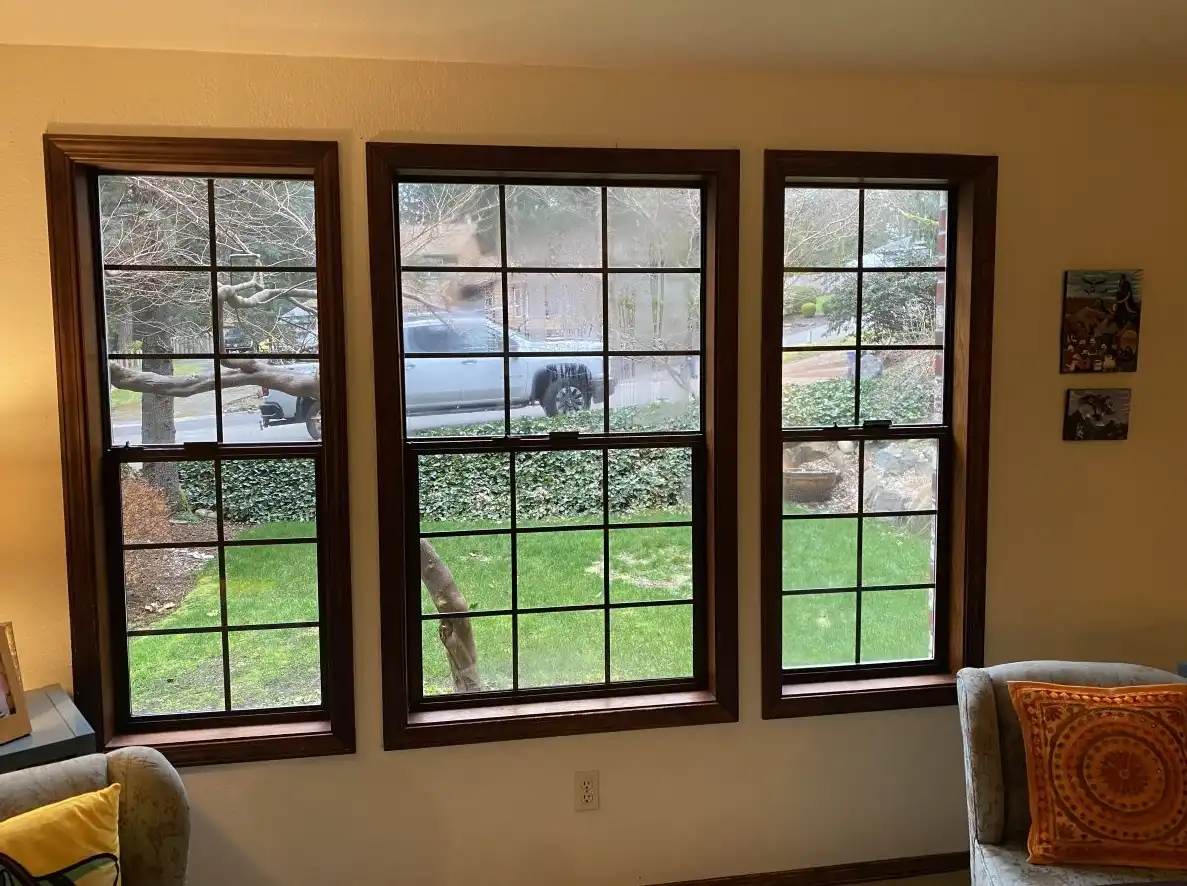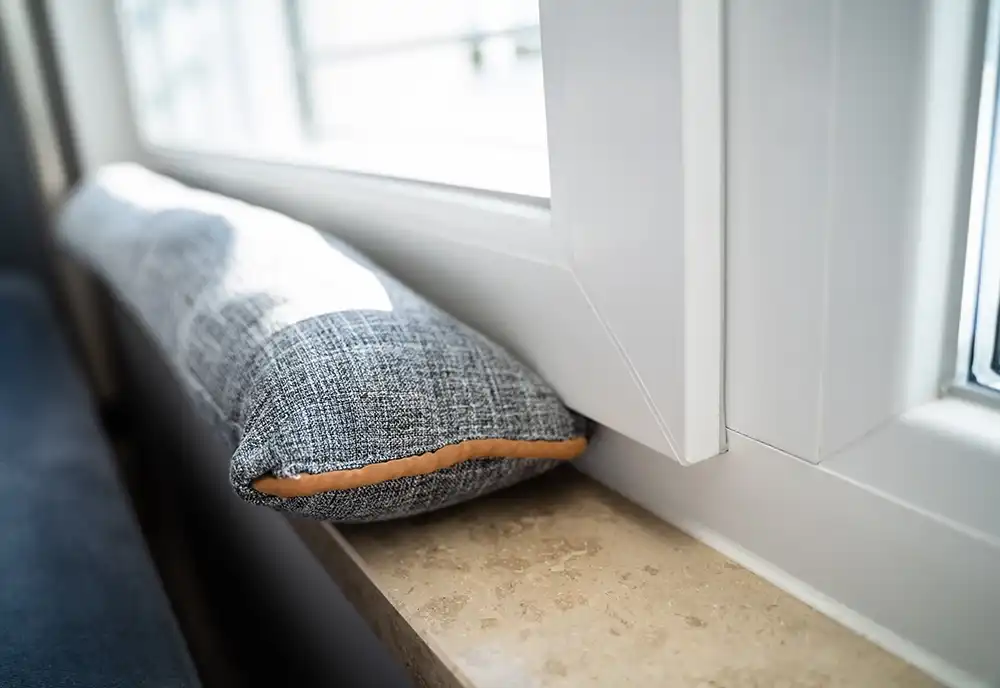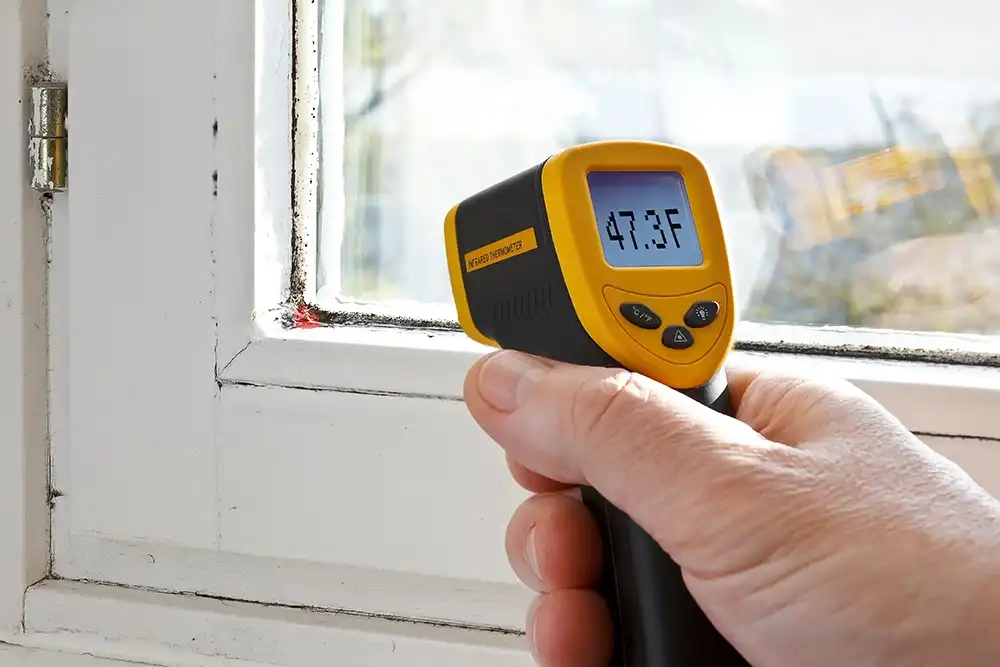
8 August 2023
What to Do When Foggy Windows Appear
Foggy windows affecting your view outside? Your foggy windows might be caused by condensation or a broken window seal. Let’s explore how you can tell the difference between foggy windows caused by condensation or broken window seals, and learn if windows with broken seals should be replaced.
Why are My Windows Foggy?: Foggy Window Causes
Are foggy windows a problem? They might be depending on the cause of the fog. Windows can become foggy due to condensation or a broken window seal on double pane windows. A pane is the piece of glass in a window. Most windows have two panes of glass. Condensation on the interior or exterior side of the glass occurs when humid air hits cool interior or exterior window glass. A broken window seal can happen due to age, exposure to water, or excessive heat, and leads to the appearance of fog between window panes.
Condensation
While it might look troubling, condensation usually means your windows are working properly because they aren’t suffering from air leakage. With little to no air leakage, that means you’ll notice the effect of humid air in your home more because it can’t escape. To get rid of window condensation, adjust the humidity level of your home by using a dehumidifier or removing indoor plants, which can contribute to your home’s humidity. Condensation appears on the outside of the windows and doesn’t mean you have to replace them.
Window Seal Failure
Double-paned windows, or insulated glass units, are windows that have a spacer bar that separates the panes of glass with an inert gas between the panes for energy efficiency. An inert gas doesn’t react with many substances and an inert gas, like argon, often gets used between window panes because it can reduce heat transfer. The window seal can start to deteriorate over time and allow the inert gas to escape. Without the gas present, moisture can form in between the panes and make your windows foggy. Insulated glass units with broken seals can get repaired but most often get replaced.
What Causes Window Seals to Break?
Window seals can start to fail due to old age, improper water drainage, and long exposure to direct sunlight. Heat can cause windows to expand and lead to seal failure.
Foggy Window Repair or Fogged Window Replacement?
While foggy windows can be repaired to fix the fog issue, the broken seal won’t be fixed. More often, a foggy window needs replacing. Seal failures usually fall under the warranty of a window and the manufacturer will resolve the issue. If your windows are no longer covered by warranty and you have a broken seal, it’s possible you only need to replace the window sash and not the entire window, depending on the type of window you have.
How to Prevent Fogged Windows
Buy energy efficient windows: Energy efficient windows will have tight seals to prevent window fog between the panes. Marvin Replacement windows come as dual pane units with an argon gas fill and spacer bar. Condensation might appear on the interior side of the glass when you install new energy efficient windows, but that means they’re working properly because air is not escaping as much, leading to your home retaining more humid air than in the past.
Have windows professionally installed: A trained installer can spot issues with windows before they get installed and they can ensure the windows get installed with a tight seal around the window opening.
Regularly inspect windows: It’s a good idea to check the caulking around your windows periodically because it can break down over time. When you do that, it’s also a good idea to inspect the seal around your windows and look for any fog or condensation between the window panes.
Reduce moisture and humidity in your home: The Environmental Protection Agency (EPA) says relative humidity in your home should remain below 60 percent, with the ideal range between 30 to 50 percent. Having lower humidity levels during winter is normal. Showering, cooking, using dryers, and humidifiers can all raise humidity levels. Reducing your indoor plants and using a dehumidifier can help you achieve better humidity levels.
FAQs
Why do house windows fog up in the morning?
Your home windows can fog up in the morning during the summer months because there can be higher humidity levels outside and the inside of your home can be cooler, leading to a cooler window glass surface. Condensation occurs when warm, humid air comes into contact with a cooler surface. Morning fog tends to burn off as the sun rises and warms up the glass.
What happens when a window seal fails?
Double pane windows typically have an inert gas, like argon, between window panes for energy efficiency. When a seal fails, that gas starts to escape. Double-pane windows have two seals, an inner seal that holds the spacer bar in place and an outer seal to protect the strength of the window. The spacer bar of the inner seal also has water-absorbing chemicals. Desiccant material inside the spacer bar can become saturated and unable to absorb any more moisture, which can lead to foggy windows.
A broken seal on a double pane window decreases the window's insulating ability as the inert gas escapes. Excess moisture inside the spacer bar can freeze and expand as it freezes to cause further damage to a window.
Broken Window Seal Beyond Repair?
Contact Marvin Replacement to get started on replacing your windows with broken seals. Our design consultants can guide you through our selection of replacement windows and cover energy efficiency options to find the best windows for your home. Schedule a free, no-hassle design consultation today!
Back to All Articles
You May Also Like

What Leaking Windows Mean for Your Home
Leaking windows can cause problems for your home. Learn how to spot window leaks and steps to take to fix leaky windows.
How to spot + fix leaking windows
When to Replace Your Windows
On installation day, our team of Marvin Replacement Certified Installers will arrive at your home to remove your old windows and install your new ones.
When to Replace Windows
What Causes Drafty Windows?
Drafty windows are nuisance and can make your home less energy efficient. Find out what causes drafty windows and what you can do about them.
What Causes Drafty Windows?